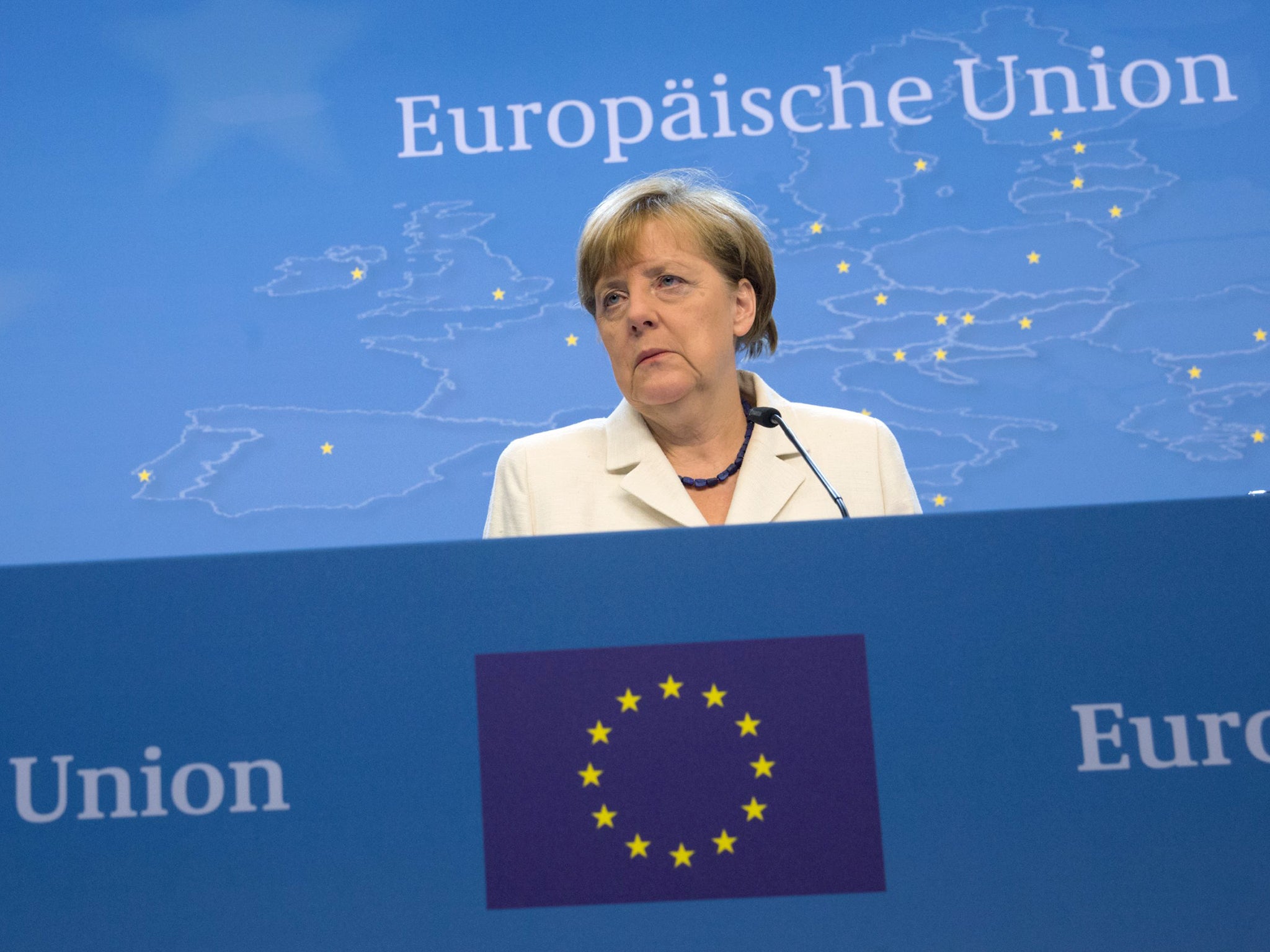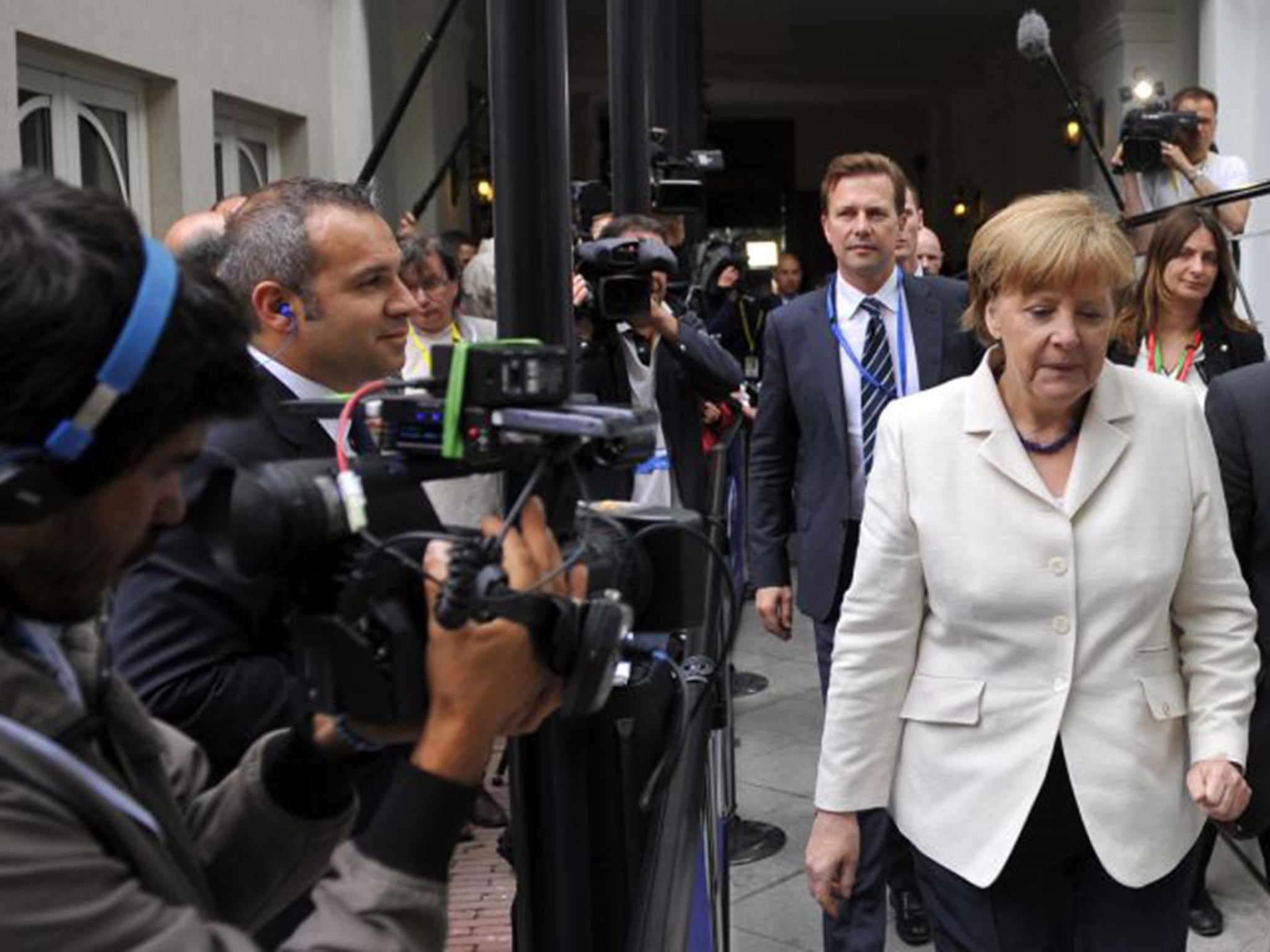Greece debt crisis: Twitter denounces new bailout agreement using #ThisIsACoup hashtag
European leaders were accused of violating Greek sovereignty with conditions

Your support helps us to tell the story
From reproductive rights to climate change to Big Tech, The Independent is on the ground when the story is developing. Whether it's investigating the financials of Elon Musk's pro-Trump PAC or producing our latest documentary, 'The A Word', which shines a light on the American women fighting for reproductive rights, we know how important it is to parse out the facts from the messaging.
At such a critical moment in US history, we need reporters on the ground. Your donation allows us to keep sending journalists to speak to both sides of the story.
The Independent is trusted by Americans across the entire political spectrum. And unlike many other quality news outlets, we choose not to lock Americans out of our reporting and analysis with paywalls. We believe quality journalism should be available to everyone, paid for by those who can afford it.
Your support makes all the difference.Twitter has denounced the new austerity measures to be imposed on Greece in exchange for a third bailout as a “coup” by European leaders.
People around the world have been voicing their anger on the social media site using the hashtag #ThisIsACoup.
It appeared to have been started by Barcelona physics teacher Sandro Maccarrone, who wrote “The Eurogroup proposal is a covert coup d’etat against the Greek people. #ThisIsACoup #Grexit” late last night, Time reported.

At the time of writing, almost 20,000 tweets using the hashtag #ThisIsACoup had been posted in the past hour and it was the top trend worldwide, as well as in Germany, Greece and London.
Nobel Prize-winning economist Paul Krugman backed the trend in a column for the New York Times, writing: “The trending hashtag ThisIsACoup is exactly right,” he wrote. “This goes beyond harsh into pure vindictiveness, complete destruction of national sovereignty, and no hope of relief.”
Here are some of the tweets:
Other commentators ridiculed the trend using the hashtag #ThisIsNotACoup and criticised tweets comparing Germany to the Nazis and displaying the swastika on the EU flag.
Germany has drawn particular ire for backing controversial elements of a deal struck this morning after all-night talks, including the possible removal of €50 billion (£36 million) of Greek public assets to Luxembourg, where the proceeds of privatisation would directly repay debts.
European Council President Donald Tusk said the agreement included “serious reforms” and “financial support” that would pave the way to avoid a “Grexit” from the euro.
But some reported conditions of the rescue package sparked accusations that Greece’s sovereignty had been violated amid continuing public anger over its long debt crisis.
The Greek government made a request last week for a three-year, €53.5 billion (£38.5 billion) financial rescue from Europe's bailout fund.
But several politicians from the ruling Syriza party were among rebelling against parliament's vote supporting tax rises and spending cuts proposed just days after similar measures were rejected by Greek voters in a referendum.
The speaker of parliament, Zoe Constantopoulou, said the Greek government was “being totally blackmailed to acquiesce to something which does not reflect what it represents“.
During negotiations that stretched beyond a weekend deadline into Monday morning, creditors indicated that Greece will need tens of billions more to stay solvent.
Banks are already closed, with a €60 (£43) daily limit imposed on cash machine withdrawals that has been in place since 28 June as angry anti-austerity protests continue.
Join our commenting forum
Join thought-provoking conversations, follow other Independent readers and see their replies
Comments